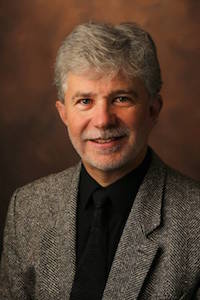READ THIS BOOK: January 2017

Each month, we ask a member of the Vanderbilt Divinity School faculty to recommend a book they are currently reading. Our January recommendation is offered by Joerg Rieger, Cal Turner Chancellor’s Chair in Wesleyan Studies and Distinguished Professor of Theology. Professor Rieger recommends Transcending Greedy Money: Interreligious Solidarity for Just Relations by Ulrich Duchrow and Franz J. Hinkelammert (New York: Palgrave Macmillan, 2012).
For good reasons money and economics are much-discussed subjects at present, but why should scholars of religion and theology join the conversation? Ulrich Duchrow and Franz Hinkelammert, one writing in Germany and the other in Costa Rica, are part of a small but growing minority who understand that money and the structures of the economy are shaping us all the way down. Affected are not just the obvious matters of business, budgets, and pocket books but also matters of society, culture, relationships, and religion and faith.
As the goal of the maximization of profits has become more and more widely accepted in all realms of life, linked to historical developments that reach as far back as the eighth century BCE, relationships with other human beings, the earth, and even with God suffer. Duchrow and Hinkelammert even discuss the socio-psychological effects of these dynamics, resulting for instance in the spread of depression, which is poised to become the second-largest disease in 2020 according to the World Health Organization. This rarely-observed connection of economics and depression has most recently been studied in greater detail in a new book by Vanderbilt Divinity faculty member Bruce Rogers-Vaughn, published in the same series, titled Caring for Souls in a Neoliberal Age (New York: Palgrave Macmillan, 2016).
Nevertheless, Duchrow and Hinkelammert, like Rogers-Vaughn, are not merely presenting deep analyses of our age that transcend the common trends to moralize and to assign blame to individuals. The authors seek to introduce genuine alternatives that are rooted in various religious traditions, including Judaism, Islam, Buddhism, and Christianity. While each of these traditions has distinct contributions to make, they share in common a profound understanding of the interconnectedness of all of life and various commitments to justice. In some of these traditions justice is explicitly tied to taking the side of the exploited and oppressed, and this is also where God is found. Religions, in order to avoid becoming part of the problem, must give an account of how they benefit humanity.
Solidarity is thus key for Duchrow and Hinkelammert. All major advances in the history of humanity are linked to cooperation, they observe. Democracy can no longer be merely a matter of politics; it now becomes a matter of economics as well. Religion, too, needs to be examined in this light. What would it mean, for instance, to love one’s neighbor as oneself in this perspective?
The authors understand, as most of us do, that true change is not easy to come by. As a result, they put their hope not merely in ideas, noting that rehearsing religious and philosophical insights from our various traditions is not enough. Change happens when these traditions are alive in social movements that are on the rise all over the world where solidarity is practiced with the least of these, both human and non-human.